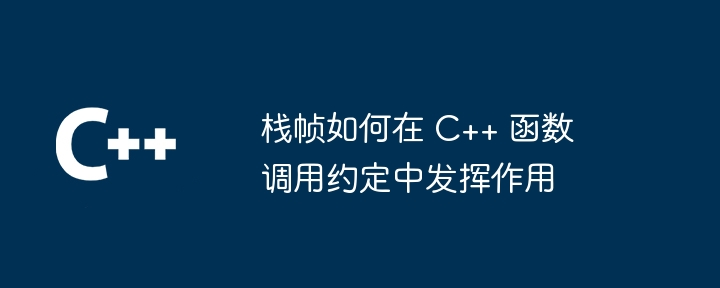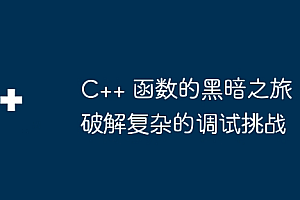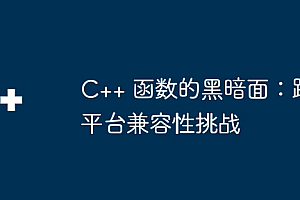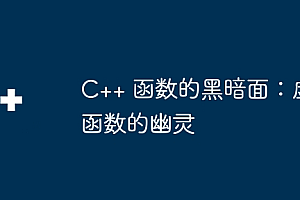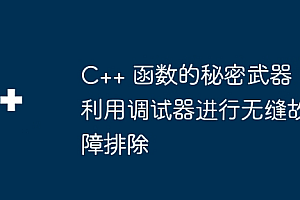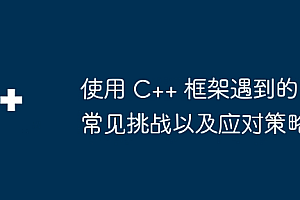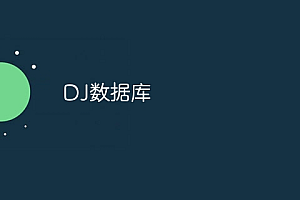c++++ 自身函数是指 c++ 标准库中提供的实用函数,用于简化和优化代码。这些函数包括:sort():对容器进行排序。max() 和 min():比较两个值并返回较大(或较小)的值。find():在容器中查找特定元素。erase():从容器中删除特定元素。transfORM():将一种容器中的元素转换为另一种类型的容器中的元素。

C++ 自身函数的使用技巧
C++ 自身函数是指那些定义在 C++ 标准库中的实用函数,它们可以简化和优化代码。以下是一些常见的 C++ 自身函数及其使用技巧:
1. sort() 函数
立即学习“C++免费学习笔记(深入)”;
|
1
2
3
4
|
#include <algorithm>
std::vector<int> nums = {5, 2, 7, 3, 1};
std::sort(nums.begin(), nums.end());
|
实战案例:对给定整数数组进行排序。
2. max() 和 min() 函数
|
1
2
3
4
5
6
|
#include <algorithm>
int a = 5;
int b = 3;
std::cout << std::max(a, b) << std::endl;
std::cout << std::min(a, b) << std::endl;
|
实战案例:比较两个值并返回较大(或较小)的值。
3. find() 函数
|
1
2
3
4
5
6
7
|
#include <algorithm>
std::vector<int> nums = {1, 2, 3, 4, 5};
auto result = std::find(nums.begin(), nums.end(), 3);
if (result != nums.end()) {
std::cout << "找到元素 3" << std::endl;
}
|
实战案例:在一个容器中查找特定元素。
4. erase() 函数
|
1
2
3
4
5
6
7
|
#include <algorithm>
std::vector<int> nums = {1, 2, 3, 4, 5};
auto result = std::find(nums.begin(), nums.end(), 3);
if (result != nums.end()) {
nums.erase(result);
}
|
实战案例:从容器中删除特定元素。
5. Transform() 函数
|
1
2
3
4
5
6
|
#include <algorithm>
std::vector<int> nums = {1, 2, 3, 4, 5};
std::vector<double> doubles(nums.size());
std::transform(nums.begin(), nums.end(),
doubles.begin(), [](int n) { return static_cast<double>(n); });
|
实战案例:将一种容器中的元素转换为另一种类型的容器中的元素。
这些只是 C++ 自身函数的几个常见示例。通过熟练掌握这些函数,您可以编写更简洁、更高效的 C++ 代码。





